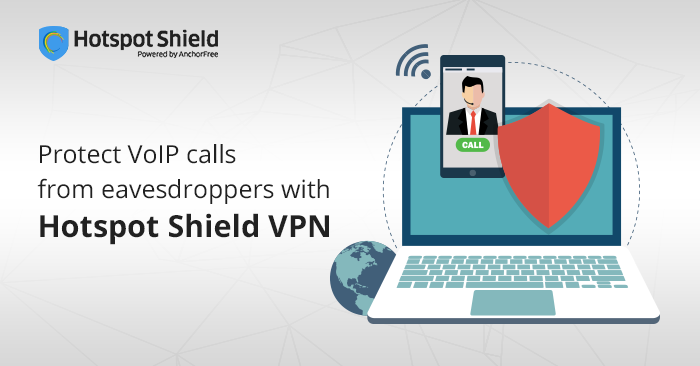How to get a Finnish IP address
The easiest way to improve your digital privacy is to switch your IP address using a VPN. We’ll …

Voice over Internet Protocol (VoIP) enables voice communications over the Internet. Apps like Google Hangouts, Skype and Facebook Messenger allow users to call other users using their broadband or data connection, eliminating the need for a landline or cellular subscription for voice communications.
VoIP calls aren’t that secure, however. Because they are transmitted via the Internet, it’s possible for a third-party entity with the right knowledge, resources, and tools to eavesdrop on calls. This compromises user privacy and security, which is why measures that help curb VoIP eavesdropping must be employed by users if they want to stay secure.
If you’re a heavy user of VoIP voice communications, here are four tips that you can follow to keep your calls safe from interception.
One of the ways a malicious individual can listen in on your VoIP conversations is through software installed on your computer or phone. They can do this either by physically accessing them or by installing one remotely through spoof sites and malware attacks. To prevent them from doing this, make sure that your device is password-protected and your security software is updated at all times.
Routers can be hijacked by unauthorized users. Since your VoIP calls also go through your router, it’s possible for data hijackers to listen in on them. This is why it’s important to always keep your router software updated, so that all vulnerabilities in previous versions of the software are patched. This minimizes the possibility of breaches.
Public WiFi is not secure. Using it makes it possible for other users to monitor your Internet activity, and many of them are spoofed for the purpose of eavesdropping on your conversations. If you find the need to connect to the Internet using the WiFi at the mall, airport, library, or your local cafe, make sure it doesn’t involve your sensitive information, including those that are sent via VoIP calls.
Using a VPN secures all your incoming and outgoing traffic from being intercepted by unauthorized individuals. This includes your personal data, such as passwords and account credentials, as well as data packets sent to and from your VoIP application.
Hotspot Shield is a VPN that makes your VoIP calls safer by protecting them from interception and hijacking during transit. Using advanced encryption technology, Hotspot Shield creates a secure online tunnel for your VoIP calls and other data, preventing hackers and snoopers from eavesdropping on your conversations and stealing any sensitive information.
Aside from this, Hotspot Shield is also a great malware protection VPN. It warns you if you’re about to open an infected or spoofed site, preventing potential attacks. This can be helpful for links that are sent to you through Skype, Google Hangouts, and other similar apps. With this, you are secure not just in terms of voice calls but also when it comes to instant messaging.
These are only two of Hotspot Shield’s many features. To learn more about them, visit the Hotspot Shield website. You can also learn about how Hotspot Shield can make your Internet sessions safer by reading our other blog posts.
